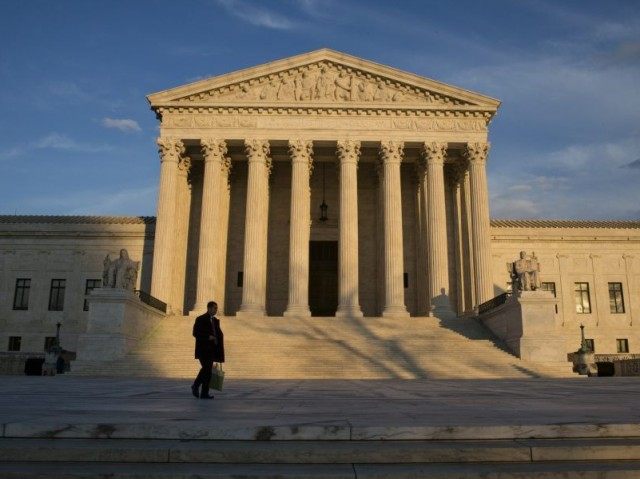With a notorious Democrat in the White House, it bears repeating that there are corrupt politicians in both the Republican and Democratic Parties. The “corruption caucus” in the political world is both bipartisan and growing.
True to Judicial Watch’s non-partisan educational mission, we joined with the Allied Educational Foundation (AEF) last week to file an amici curiae brief with the United States Supreme Court in support of a federal court of appeals decision upholding the conviction of a corrupt Republican politician — former Virginia Gov. Bob McDonnell, who was found guilty by a jury of 11 counts of corruption and fraud.
AEF, a JW frequent partner on amici briefs, is a charitable and educational foundation dedicated to empowering America through education and legal action.
Here’s the story:
In September 2014, McDonnell was convicted of granting political favors to a Richmond businessman in exchange for golf outings, lavish vacations, and $120,000 in loans. In July 2015, the United States Court of Appeals for the Fourth Circuit unanimously rejected McDonnell’s appeal. In January 2016, the Supreme Court agreed to review the lower court’s decision. McDonnell alleges that the federal statues penalizing bribery and extortion are impermissibly vague under the U.S. Constitution.
In our amici brief in support of the Court of Appeals decision, we and AEF argue that the two laws at issue are straightforward tools for policing public corruption:
Public officials have a duty to act in the best interest of the people who elect them. When they make decisions based on personal interest, they are defrauding the public. The honest services statute criminalizes government corruption by punishing those who execute a scheme to deprive another of the right to “honest services.” The Hobbs Act prohibits extortion “under color of official right.”
Petitioner was convicted of violating these statutes when he accepted more than $175,000 in personal benefits (loans and luxury items) in exchange for agreeing to use the power of his office on behalf of his benefactor. In considering whether the actions taken by petitioner constituted “official acts,” amici urge the Court to adopt as broad as possible interpretation.
The honest services statute and the Hobbs Act have served as critical tools in prosecuting public corruption. The Court should adopt a broad interpretation of what constitutes an “official act” as not to deprive prosecutors of these critical tools.”
The amici brief suggests that curtailing or scrapping these statutes would guarantee that more corrupt politicians and bureaucrats would escape prosecution and that public corruption prosecutions already have dropped dramatically under the Obama administration:
A long-term decline in federal prosecutions for public corruption has continued and reached a 20-year low. Data from the Justice Department show that 505 individuals were prosecuted for corruption offenses during FY 2015, a decline of 3.6 percent from FY 2014 and down more than 30 percent from five years ago. For the first four months of FY 2016, there have been just 140 new official corruption prosecutions. This is the lowest level reported for such prosecutions in the last 20 years.
Moreover, the Obama administration has pursued 16 percent fewer public corruption charges against federal employees than the administrations of Presidents Bill Clinton and George W. Bush, according to a 2014 DOJ report to Congress on public integrity … The Obama administration has filed an annual average of 390 such prosecutions compared to Clinton (1995-2000) average of 468 federal employees and Bush (2001-2009) average of 467).
Our brief highlights how hundreds of public officials have been successfully prosecuted for depriving the public of “honest services” and violating the Hobbs Act. You can see the astonishing list here.
It is no surprise that criminal politicians don’t like federal corruption laws, but that doesn’t make those laws unconstitutional. Under the Obama administration, there’s been a remarkable drop in government corruption prosecutions. Eviscerating anti-corruption laws is the last thing this nation needs — as public corruption is already out of control.

COMMENTS
Please let us know if you're having issues with commenting.